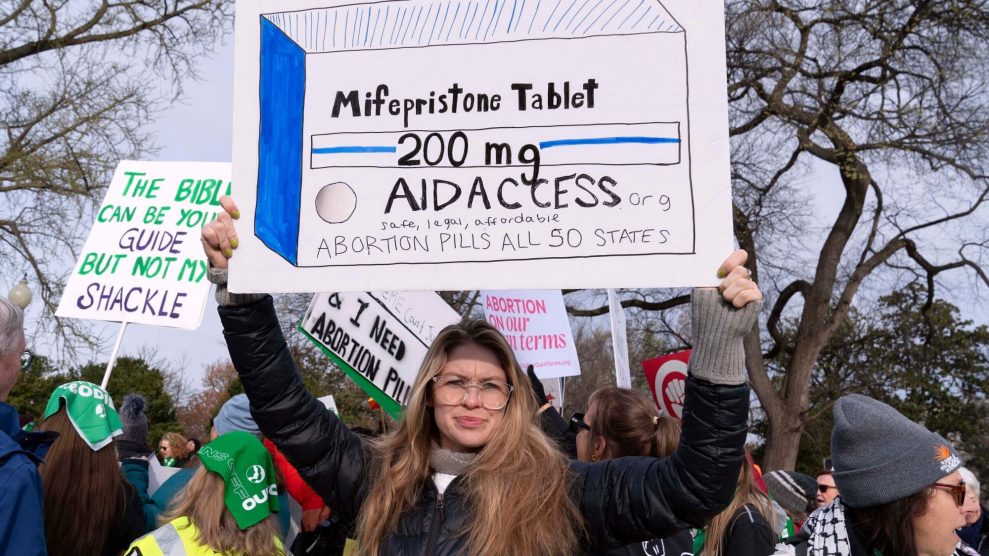Mifepristone, a medication pivotal to abortion care, celebrated its 25th anniversary on September 28, 2023. Originally approved by the Food and Drug Administration (FDA) in the United States in 2000, the drug is now facing unprecedented challenges as anti-abortion advocates intensify their efforts to revoke its approval and limit access to abortion nationwide.
Initially approved for use up to seven weeks of pregnancy, mifepristone allows individuals to terminate pregnancies in a private setting, significantly enhancing access to abortion services. In 2016, the FDA extended its use to ten weeks’ gestation, a move backed by abortion rights activists who argue that it is safe even later in pregnancy. The World Health Organization supports its use throughout the first trimester.
Current Landscape of Medication Abortion
The significance of mifepristone has grown, particularly after the Supreme Court’s 2022 decision in Dobbs v. Jackson Women’s Health Organization, which overturned Roe v. Wade. Despite this ruling, medication abortions now account for over 60 percent of all abortions in the United States, according to the Guttmacher Institute. The rise of telehealth has further bolstered access, allowing one in four abortions to be conducted via pills prescribed remotely.
In December 2021, the Biden administration made additional strides by permitting remote prescriptions of abortion medications, which has made them more accessible and affordable. The expansion of telehealth services and protective shield laws in more liberal states has enabled providers to continue offering these essential services despite restrictive laws in conservative states.
However, the political landscape surrounding mifepristone remains contentious. Anti-abortion Republicans have sought to undermine the drug’s credibility by questioning its safety and efficacy, despite over 100 scientific studies affirming its safety. Carrie N. Baker, a professor at Smith College, emphasized that medication abortion is “safer than Tylenol,” pointing out that political opposition delayed mifepristone’s approval compared to other medications.
Legal and Political Challenges Ahead
This past week, Health and Human Services (HHS) Secretary Robert F. Kennedy Jr. and FDA Commissioner Marty Makary announced plans for a new review of mifepristone, responding to pressure from Republican attorneys general. Their announcement referenced a report from the Ethics and Public Policy Center, a conservative organization, which claimed to have identified a higher rate of complications associated with the drug. However, experts have criticized the report’s lack of peer review and methodological transparency.
“Anti-abortion policymakers and activists are escalating attacks on medication abortion to continue their crusade against abortion for anyone and at any time through shoddy science,” stated Kelly Baden, vice president of public policy at the Guttmacher Institute.
The ongoing battle over mifepristone is not new. Anti-abortion groups have previously requested the Department of Justice and the FDA to enforce the 19th-century Comstock Act to restrict access to abortion pills. In addition, various lawsuits have emerged, including a case filed by the Alliance for Hippocratic Medicine challenging the FDA’s approval of mifepristone, which the Supreme Court dismissed last year. Nonetheless, several states, including Texas and Florida, have intervened to revive this case.
Recent legislation in states like Louisiana has classified mifepristone and misoprostol as controlled substances, potentially affecting non-abortion-related medical care. Texas has passed a law enabling private citizens to sue anyone involved in the distribution or provision of abortion pills, further complicating the landscape for providers.
In contrast, blue states are strengthening their shield laws to protect providers who prescribe abortion pills. Ahead of mifepristone’s anniversary, advocates for reproductive rights highlighted the drug’s transformative impact on reproductive health while condemning efforts to limit access. Danika Severino Wynn, vice president of care and access at Planned Parenthood Federation of America, reinforced the message that abortion is healthcare and mifepristone remains a safe and effective option.
As the political and legal battles surrounding mifepristone continue, advocates assert that these challenges will not stop access to abortion pills. Elisa Wells, co-founder of Plan C, described mifepristone as a “transformational and disruptive hero” in modernizing abortion access despite ongoing opposition.
The future of mifepristone remains uncertain as political dynamics evolve, but the drug’s role in reproductive health continues to be a focal point in the broader conversation surrounding abortion access in the United States.








































































